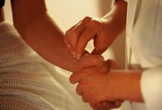
Brain & Memory
Is your memory not what it used to be? Do you have difficulty focusing on your work? Do you have trouble remembering people’s names? Do you experience anxiety that seems out of proportion compared to the stress in your life?
Brain function encompasses many areas, including memory, focus, space-time orientation, the ability to learn new skills, and mental-emotional states. Recent public health figures show alarming increases in brain function disorders for people of all ages:
the Alzheimer's Association data from 2022 show that 1 in 9 Americans over age 65 have Alzheimer's dementia. The CDC reports that 9.5% of American children ages 4-17 have been diagnosed with ADHD; over 10% adults suffer from depression and nearly 40 million adult Americans (or 18%) suffer from anxiety disorders. For anxiety disorders alone more than $22.84 billion is spent annually for repeated use of health care services.
Many neurological and brain disorders are not yet well-understood. Causative factors include neurodegeneration (death of brain cells), viral infections, environmental toxins, and genetic predisposition. Depending on the condition, conventional Western medicine treatment may include a multitude of medications, surgery, or behavioral therapy.
The practitioners at MHS understand brain health to be a direct extension of health in the rest of the body. Many factors, such as blood sugar disregulation, poor oxygenation to the brain, food intolerances, poor digestive health leading to leaky gut/leaky blood-brain -barrier, systemic inflammation, and adrenal hyper/hypofunction could contribute to a decline in brain health. We are trained to recognize signs associated with imbalances in specific neurotransmitters, and address most cases with these treatment approaches: 
Acupuncture protocols that specifically address brain injury, regulate feedback between the peripheral and central nervous systems, promote healthy circulation patterns, and modulate the stress response. Acupuncture has long been used as a treatment to help improve memory and cognitive function. A 2006 study in Neurology Research demonstrated that acupuncture significantly helped with test subjects’ memory and calculation1. Recent clinical studies are also showing that acupuncture helps with anxiety, depression, and control insomnia2, and even improve the immune response of people with anxiety3.
Dietary counseling to target your unique constitution, decrease inflammation, and provide optimal nutrition for brain health;
Herbal and nutritional supplementation that helps to balance oxygen and glucose levels in the body, and positively impact central nervous system function.
Lifestyle practices such as appropriate exercise, sleep regulation, stress and mental health management all play a role in brain health.
With a combination of the above approaches, we have successfully helped many people with the following:
- Dramatically improve spacial and verbal memory
- Enhance focus and work performance
- Manage anxiety associated with PTSD
- Regulate moods
- Decrease anxiety & depression
- Working in conjunction with the patient’s physician, manage a decrease and/or discontinuation of antidepressant medications
- Help children with impulse control, tics, and sensory disintegration disorder
- Improve ADHD behaviors in children and adults
References:
1. Yu et al., Effect of acupuncture treatment on vascular dementia. Neurol Res. 2006 Jan;28(1):97-103.
2. Ruan et al., Effects of the degrees of anxiety and depression on the therapeutic effect of acupuncture in the patient of insomnia. Zhongguo Zhen Jiu. 2006 Mar;26(3):186-8.
3. Arranz, et al. Effect of acupuncture treatment on the immune function impairment found in anxious women. Am J Chin Med. 2007;35(1):35-51.
Other relevant Studies:
Luo H, Meng F, Jia Y, Zhao X: Clinical research on the therapeutic effect of the electro-acupuncture treatment in patients with depression. Psychiatry and Clinical Neurosciences 1998; 52 (Suppl):S338-S340.
Ernst E, Rand Jl, Stevinson C: Complementary therapies for depression: an overview. Archives of General Psychiatry 1998; 55:1026-1032.
Kurland HD. ECT and Acu-EST in the treatment of depression. American Journal of Chinese Medicine 1976; 4:289-292.
Roschke J, Wolf C, Kogel P, Wagner P, Bech S: Adjuvant whole body acupuncture in depression. A placebo-controlled study with standardized mianserin therapy. [German] Nervenarzt 1998; 69:961-967.
Pathogenesis of IBS: role of inflammation, immunity and neuroimmune interactions: Nat Rev Gastroenterol Hepatol. 2010 Mar:7(3):163-73. Epub 2010 Jan 26
Wade PR, Cowen T. Neurodegeneration: a key factor in the ageing gut: Neurogastroenterol Motil. 2004 Apr;16 Suppl 1:19-23
Maes M, Kubera M, Leunis JC. The brain-gut barrier in major depression: Intestinal mucosal dysfunction with an increased translocation of LPS from gram negative interobacteria (leaky gut) plays a role in the inflammatory pathophysiology of depression: Neuro Endocrinol Lett. 2008 Feb;29(1):117-24
Reichelt KL, Knivsberg AM. The possibility and probability of a gut-to-brain connection in autism: Ann Clin Psychiatry. 2009 Oct-Dec;21(4):205-11


